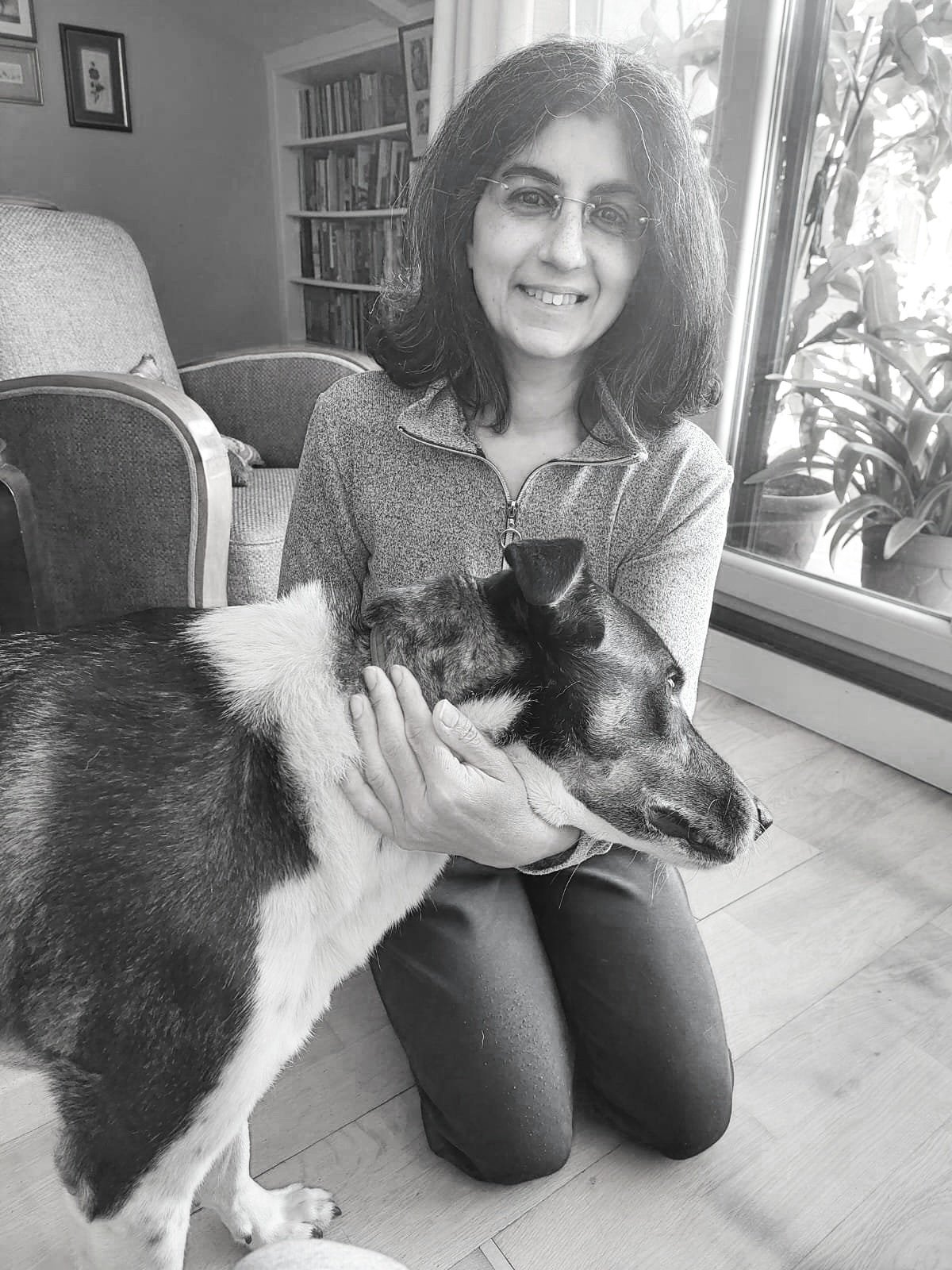-
Katie is a geographer interested in animals, history, and society. She is particularly interested in birds, currently working with chickens and seabirds (in different projects!). Katie is excited to chair the AGWG and create spaces for animal geographers at all stages of their careers.
-
Hannah is a geographer whose work explores conservation ethics and practice, nonhuman labour, and ideas of Nature in the Anthropocene. She is currently developing a project on domestic infestations and is particularly interested in rats, mice, bedbugs, clothes moths and other pest species.
-
Hannah is a geographer working across political-animal geography, political ecology and the blue humanities. Her research focuses on legal and illegal commodification of marine animals, and the role of ocean governance in shaping marine biodiversity conservation. She’s really excited to bring a ‘blue’ perspective to my role with the AGWG.
-
Kat's specialism is in critical understandings of practices, politics and human/other-than-human entanglements in food production. She analyses the existing industrialised food system and draws on artistic practice as a method to explore the potential for a socio-environmental transformation. She's based in the Sociology department at Northumbria University.
-
Timothy is an environmental geographer whose research examines the ways in which nonhuman life is governed across different spatial scales and situations. Past projects have ranged from exploring how people live with the microbial life in their homes, to the politics and practices of conservation and rewilding for woodland mammals in the UK, to the cross-border legal protections for large carnivores under international treaties. Current interests include how nonhuman life is made present within engineering practices. And rabbits.
-
Shruti Ragavan is a doctoral scholar interested in the enmeshed lives of animals, particularly bovines in urban India. Her research lies at the intersection of southern urbanisms and more-than-human geographies, exploring questions of urban inhabitance, commoning, agrarian urbanisms, planning and aesthetics, and writing more-than-human histories of cities.
-
Amby is a political economist interested in corporate power, uneven development and the expansion of industrial livestock systems in the global south. His empirical work focuses on the metabolism of genetics, feed and nonhuman labour in relation to broiler chickens (chickens bred for meat) within factory farming production in global south countries such as India. He is a lecturer at King’s College London and his current research explores the ownership structures of poultry agribusiness in India, China, Brazil and Mexico, understanding the role of private equity, hedge funds and asset managers in profiting from and expanding industrial livestock production in these countries.
-
Dan is a geographer whose research examines human-animal relations in policy and practice. Past work has explored geographies of human-otter identity and the welfare of wildlife. Current interests include experiences of animal companionship in relation to dog theft, no-pet policy, and the American XL Bully ban in the UK. An experienced animal campaigner, his Pet Theft Reform (2018-) campaign led to the creation of the Pet Abduction Act 2024.
-
Jamie is a geographer based at York St John University. They are interested in the intersection of animal geographies and disability geographies, and animal geographies and policy. Empirically, their work has involved examining the training of assistance dogs for and by people with disabilities, and the social and emotional impact of pet theft in the UK.
-
Jonny is a geographer interested in the more-than-human aspects of social, political, and economic life. Empirically, his work involves dogs and wolves in the Chornobyl Exclusion Zone in Ukraine, urban peregrine falcons in the UK, cows in Indian cities, beavers in Bavaria and London, and other species beyond. Based at the University of Oxford, his current research examines urban rewilding.
-
Basak is an urban sociologist interested in gated communities, similar housing forms, urban transformation and vacancy, space and place, and borders and boundaries.
Basak is also interested in animal studies. Based in Istanbul, Turkey, she aims to bring fresh perspectives, particularly on the conflict between people and animals in urban spaces.
More particularly, Basak is developing a new wilderness agenda by focusing on the Lake District and Cumbria, which will bring together nature and culture and reduce the conflict between rewilding initiatives and hill farming.
-
Richard’s research addresses a range of ethical landscapes rooted in inter-species social justice and total liberation movements. His main areas of expertise involve deconstructing the ways in which the exploitations of humans and other animals runs side-by- side and intersects in society, and in developing new geographic imaginaries based on peace and nonviolence. An Associate Professor in Human Geography at Sheffield Hallam University, he has recently co-edited Vegan Geographies (Lantern Press, 2022), and is a member of the Research Academic Committee for the UK Vegan Society.











